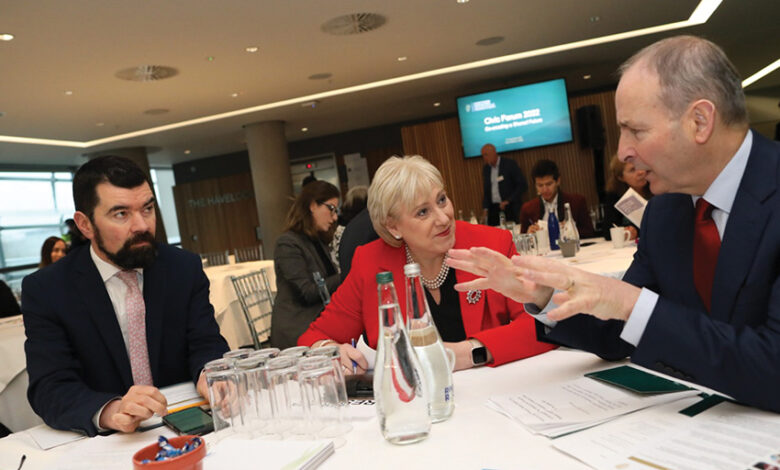Social dialogue: Engaging with communities

Mary Hurley, Secretary General, Department of Rural and Community Development, discusses the role of the civic forum in strengthening social dialogue and civic participation in public policy-making.
Established with the mission to promote rural and community development, and to support vibrant, inclusive, and sustainable communities throughout Ireland, one of the core strategic goals for the Department of Rural and Community Development is the enablement of community, voluntary, charity, philanthropic, and social economy sectors to contribute fully to civil society.
Hurley, who has worked across a broad spectrum of public policy, outlines a fundamental understanding of the role of engagement in driving good public policy, in the context of the first national civic forum held in November 2022.
“The true power of communities was never so evident as in recent years when the response to the Covid-19 pandemic and the Ukraine invasion highlighted the value of the community and voluntary sector to delivering public services,” she explains.
“We are on a journey of strengthening social dialogue and civic participation in public policy-making.”
The context for the civic forum was the commitment in the Programme for Government to “produce a coherent policy framework and develop a strategy to support the community and voluntary sector and encourage a cooperative approach between public bodies and the community and voluntary sector”.
In August 2019, the Department, in collaboration with the community and voluntary sector, published Sustainable, Inclusive and Empowered Communities, a five-year strategy to support the community and voluntary sector in Ireland 2019-2024, included in which was an action to establish a civic forum.
Mary Hurley, Secretary General, Department of Rural and Community Development
The Secretary General highlights an acknowledgement from central government that cuts to the community and voluntary sector during the recession stalled some of the momentum which had been built up around engagement with social partners. In turn, the civic forum was geared at regenerating those relationships and ultimately, strengthening the formal engagement between the sector and local and central government.
“From the outset of our ambitions to strengthen those relationships, we recognised the value of co-design. Creating the vehicle for which people could engage meant not only consultation, but a workshopping of themes whereby an agreed output was established. Critically, we ensured there was an honesty about the limitations on delivery for the sector, while valuing the engagement and real dialogue about the challenges that needed to be addressed,” Hurley says.
Opened by the then Taoiseach Micheál Martin TD in November 2022, the first national civic forum has led to the publication of a document collating feedback and contributions, but also setting a roadmap for future engagement.
“The National Civic Forum 2022 emphasised the point made in the co-design consultations that the forum should be understood as a process rather than as an event. The first recommendation is for an ongoing process which should create ‘spaces for ongoing dialogue’, with the immediate focus being on developing and communicating the ‘why’ of the forum,” Hurley explains.
The Secretary General is quick to point out the civic forum’s position within wider social dialogue processes, not least sectoral fora around issues such as health, climate change and social inclusion. Additionally government departments and agencies engage extensively with stakeholders, and at local government level through public participation networks, local community development committees, and strategic policy committees.
Discussing progress to date, Hurley says: “One of the surprising things has been that there has been no pushback or reluctance from any policymakers around the broadening of social dialogue. The power and value of civil society has been evident in the last number of years and government at all levels see the value of engagement on the ground, and see that enhanced connectivity is working in a positive way.
“Another key understanding is that there is no one-size-fits all approach for individual communities. The needs of a rural community can look very different to that of an island community, and the creation of the Values and Principles for Collaboration and Partnership Working with the Community and Voluntary Sector at Local and National Levels document has been very useful in terms of how we engage.”
Next steps
Outlining the next steps, not least a plan to hold a second national civic forum in 2023, the Secretary General says: “We know that public services only work if there is a need from people for those services and that people are bought in to those services. Key to that buy-in is engagement, both for the communities being served and for the State in delivering those services.
“We will not deliver value for money if we do not engage, and that engagement will not be meaningful if we do not have the formal structures to allow citizens to be heard.
“We know that we can improve services and we want to continue on that journey of engagement-driven improvement. The challenge will be to ensure those dialogue structures are meaningful, but also that as policymakers we are implementing the changes being identified.”






